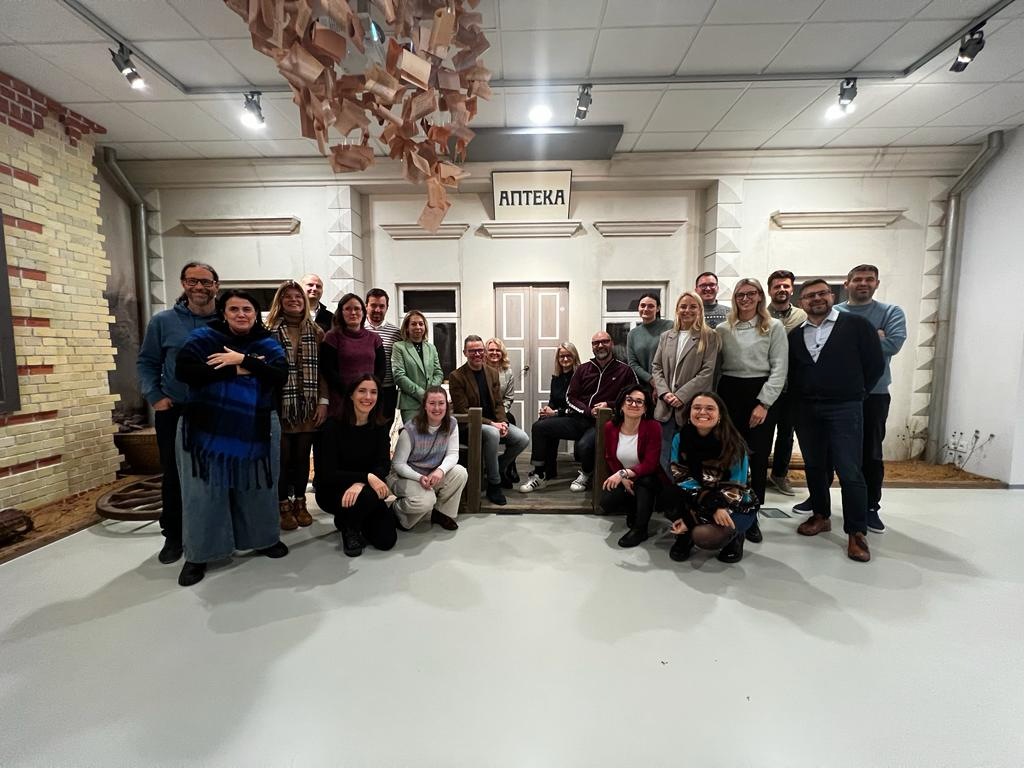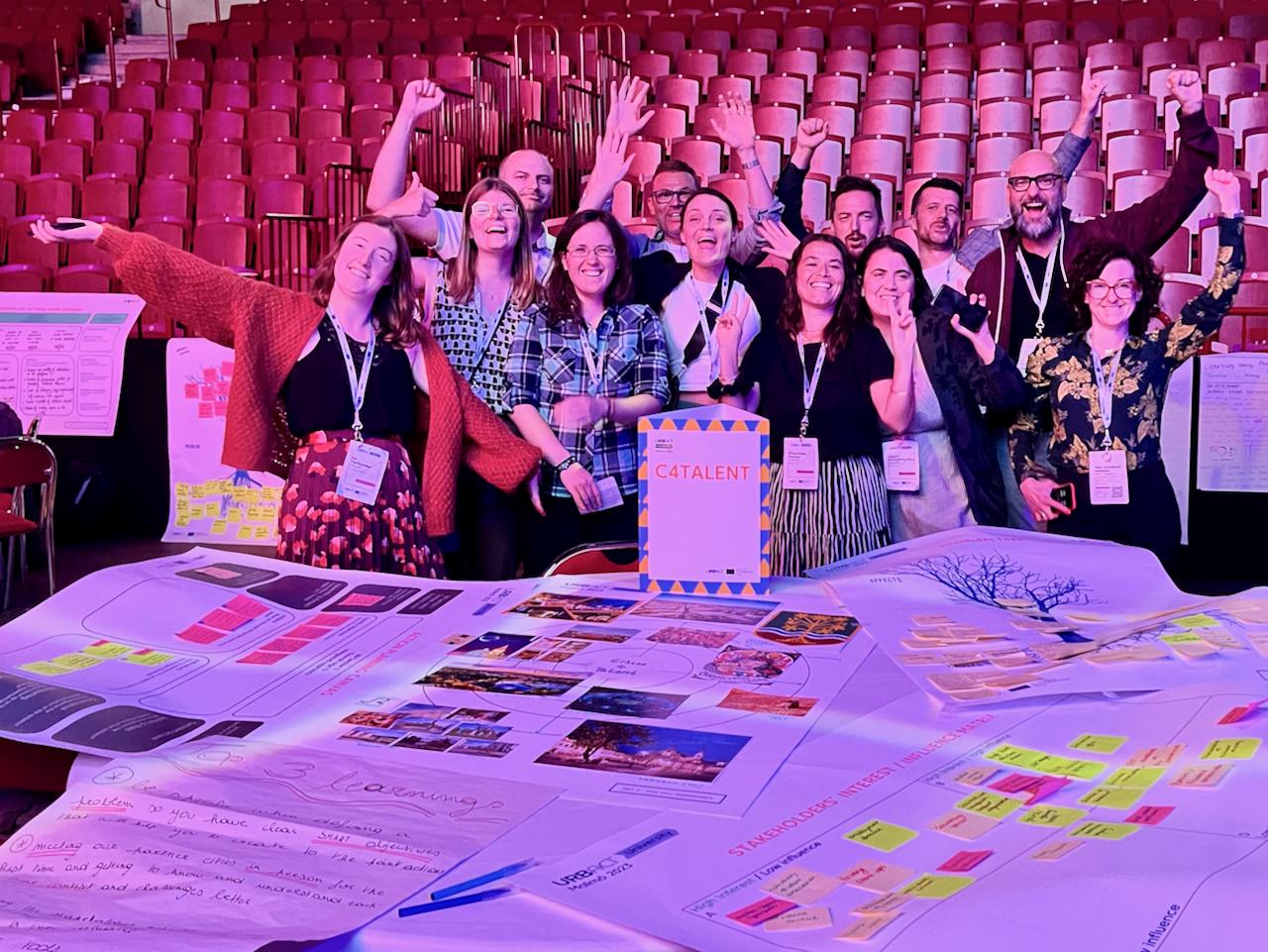The battle for talent
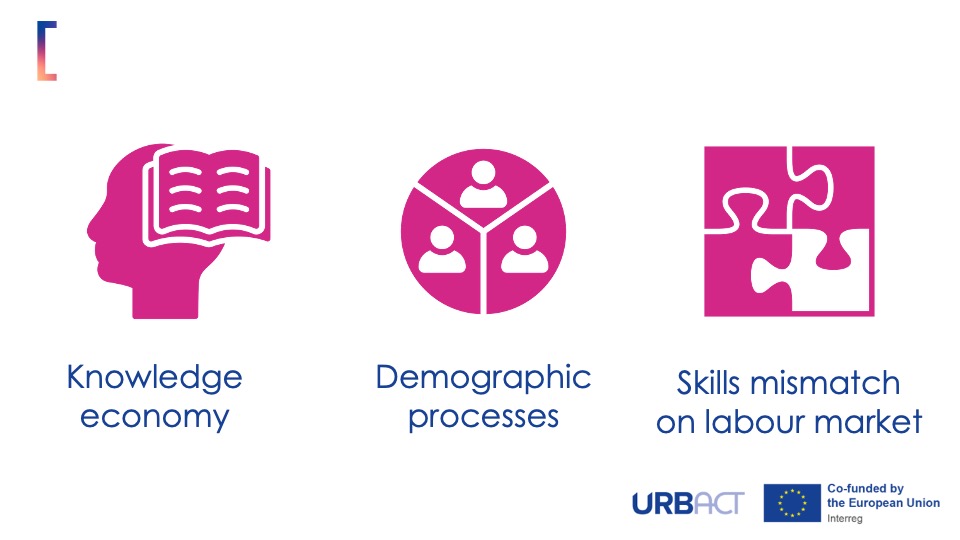
The phenomenon of brain drain, where skilled individuals migrate to more economically vibrant areas, poses a significant threat to the social and economic fabric of smaller towns. The ease of movement within the European Union has further amplified this trend, with statistics revealing a growing exodus of young, educated individuals – particularly those with higher education degrees – opting for careers in larger, more developed cities.
The consequences of talent loss are far-reaching, including labour / talent shortage: as societies age, an increasing number of people retire, while there’s a limited and decreasing supply of future workforce. In addition, in the age of knowledge economy losing open-minded, educated people results in limited innovation capacity, which in turn contributes to the slow decline of the local economy and, as a consequence, the quality of life. This decline sets in motion a self-reinforcing cycle of outmigration and the towns affected sink into a vicious circle.
Unsurprisingly, an increasing number of cities globally, and particularly in Europe, have recognized the urgency of implementing active policies to attract and retain talent. However, most of the cities focusing on talent attraction and retention are the capital cities and the big economic and knowledge centres that are already attractive even without active measures - leaving smaller towns with a more pronounced problem less actively addressed.
The many faces of talent attraction and retention
Talent attraction and retention is a complex challenge and there are many elements at play influencing the choice of place of talented people - the two most important being jobs and lifestyle-related factors. While debates among researchers often revolve around the primacy of either jobs or lifestyle, the reality is not an either/or choice. Relocation decisions are often influenced by attractive job offers, better salaries, or favorable conditions for business growth – all work-related factors. However, if someone does not like the place, is not satisfied with the lifestyle factors, (s)he will eventually try to find a better place. Indeed, in the age of remote or hybrid work many people - especially younger IT professionals who can work from virtually anywhere - prefer to choose a place with exceptional lifestyle and work from there. So, lifestyle factors cannot be ignored, either: if a city wants to attract and retain talent, it needs to offer attractive jobs (and / or excellent conditions for running and developing a business) as well as the key conditions of quality lifestyle.
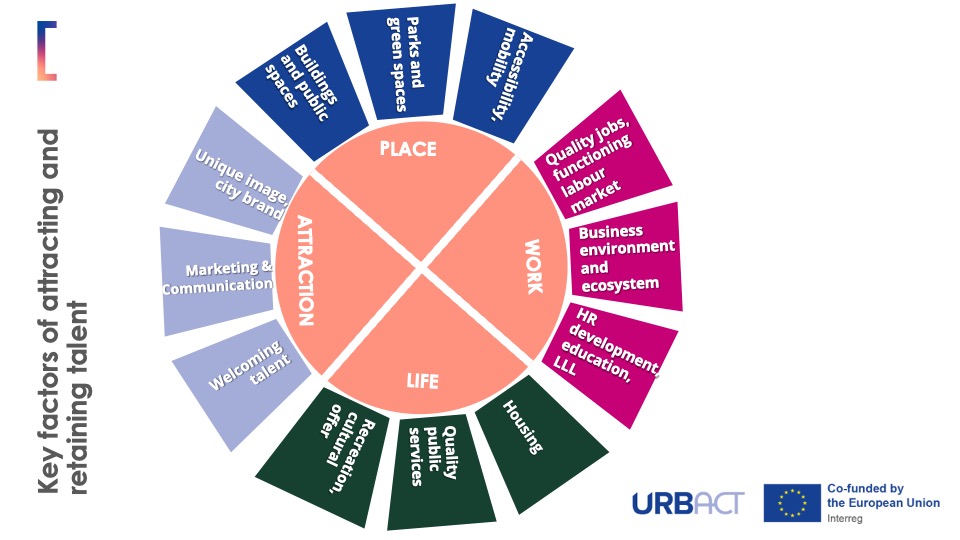
C4TALENT: Partnership with an URBACT history
Understanding the importance of this challenge, 10 local authorities from across Europe (Nyíregyháza - Hungary, LP; Alghero - Italy; Alytus - Lithuania; Centar Sarajevo - Bosnia-Hercegovina; Piraeus - Greece; Pula - Croatia; Roeselare - Belgium; Rzeszów - Poland, Varberg - Sweden and Vilanova i la Geltrú, Spain, Catalunya) decided to work together, learn from each other and from good practices outside the partnership to develop a talent- and startup-friendly environment. The key question they seek to answer is the following: “How can small- and medium-sized cities contribute to attracting and retaining talent - by developing an attractive business support and start-up ecosystem?”
The partnership is not without previous common (URBACT) history, either: Nyíregyháza, Vilanova i la Geltrú and Piraeus cooperated in TechRevolution transfer network, while Alytus, Roeselare and Rzeszów were part of TechRevolution 2.0 - working together to maximise the job creation potential of digital. Now these cities teamed up again and - together with the new partners - continue their URBACT journey, bringing in new aspects while building on what they have already learned and achieved.
Working on a complex challenge
C4TALENT partners will work together to create a thriving startup community and business support ecosystem in their city. To achieve that, they need to improve:
- the policy environment;
- access to finance;
- access to markets;
- access to business support;
- access to physical spaces;
- the entrepreneurial culture.
This in itself is already a complex challenge, but they also need to take a genuinely integrated approach to understand and address various aspects of the wider context of talent attraction and retention.
Common theme, different local problems and potential solutions
While partner cities work on a common policy theme, some of their specific local problems are diverse, and there is no one-size-fits-all solution.
Some cities - like for instance Vilanova i la Geltrú - already have a physical space - enterprise hub - but they need to shift focus, modernize and develop it to better address the specific needs of local entrepreneurs and adapt to new challenges.
In Alytus there is no hub yet, but the funding is secured and their main challenge is to design and build a space together with the local business community that can become the centre of a well-functioning ecosystem. Yet some others - like Varberg - are at an earlier stage: they definitely want to develop a place for enterprises at the Varberg Campus, but this project is still at an early stage. Or, take Pula, where an ambitious IT community - together with the local authority - would like to obtain a seafront plot - former military area - from the national government and develop a world-class business hub with a range of functions and exceptional lifestyle factors that can attract IT businesses from all over Europe and even beyond. And these are just some of the examples.
Certainly, our city partners also have various problems to deal with: many of them struggle to coordinate and align the services of already existing business support organisations. Others still need to work hard to get a stronger commitment of local politicians. And the cities that are also important tourist destinations - like Pula, Alghero and, to a certain extent Varberg - suffer from prohibitive housing costs - which eventually could become an major obstacle of attracting talented people.
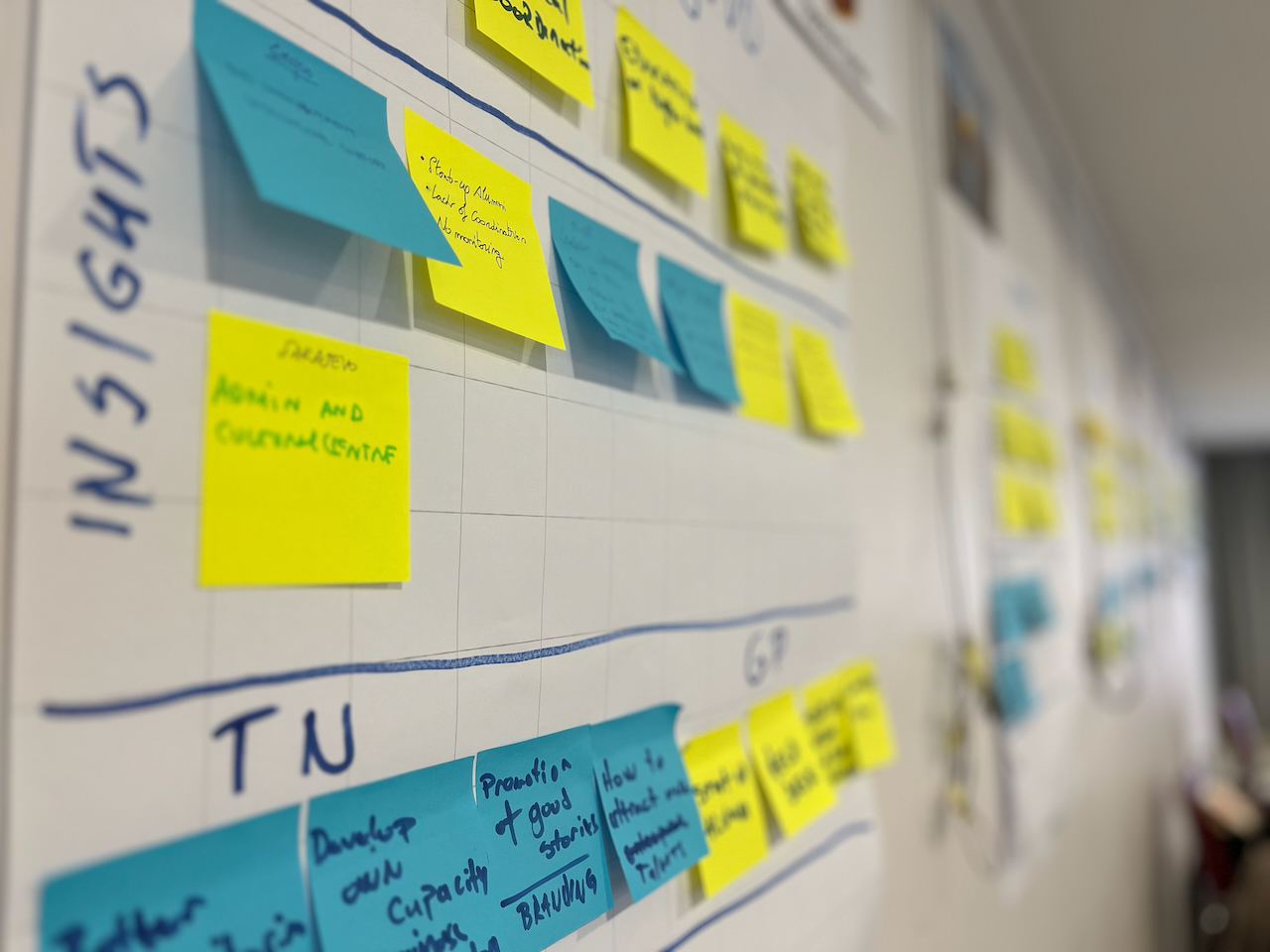
The journey just begins
On 22-23 November, the partnership spent 2 very intense days in Alytus, Lithuania to get to know each other better, to discuss the specific challenges of partner cities, and to develop a common understanding of the policy themes of the network. They also exchanged experience, inspirational good practices, and surveyed the training / learning needs to design a journey that helps all partners to develop a high-quality integrated action plan - and, most importantly, to become attractive hubs that can successfully compete with their larger counterparts, and where success stories like that of Erik and Máté are not rare exceptions but the norm.
